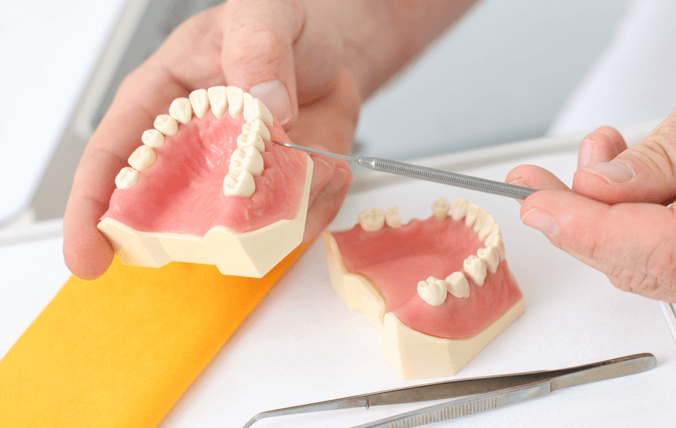Do you notice some pink in the sink when you spit out your toothpaste after brushing?
Do your gums bleed when you floss?
If your gums are bleeding constantly, you shouldn’t ignore it. Gums can bleed for several reasons, here’s what to do if you notice it…
Up Your Oral Hygiene Regime
A common cause of bleeding gums is plaque build-up. When plaque isn’t removed efficiently, it becomes harder and turns into tartar, which is a calcified material that plaque sticks to and continues to irritate the gums. This causes them to bleed and can progress into more advanced forms of gum disease. The best way to reduce plaque build-up is the improve your oral care regime.
Remember to brush for two minutes, twice a day, using an electric toothbrush if possible, with a fluoride toothpaste. You should floss every evening, or use TePe brushes between your teeth (ensure you use the correct size for the gap, ask your dental hygienist for help if you are unsure). Seeing your dentist on a regular basis – not just when a problem arises – is also a must to keep your mouth in shape.
Maintain a Healthy Diet
What and when you eat plays a key part in preventing your gums from bleeding. Foods that contain a lot of sugar or simple carbohydrates increase your risk for tooth and gum problems, as sugar creates an ideal environment for plaque to form. A low sugar, nutritious diet is key. Nutrients found in vegetables are ideal. You don’t have to cut out all the naughty things, but ensure you have a balanced diet and everything in moderation. Make sure you brush after snacks too, this will ensure the sugar isn’t hanging around.
Are You Taking Any Medication?
Certain medicines can make your gums susceptible to bleeding. Some over-the-counter pain killers such as aspirin, thin the blood and therefore can increase bleeding. If this is the case, speak to your doctor who may be able to suggest an alternative or change the dosage where possible. Always talk to your doctor if you think a medication is causing side effects, even if they seem mild.
Visit Your Dentist Regularly
It is essential to maintain regular check-ups at your dentist, as they not only check the teeth in your mouth, but the soft tissue as well (cheeks, tongue, palate and gums). Your dentist may also take x-rays of your teeth. The examination will determine if and what treatment may be necessary to reduce your bleeding. This could mean regularly visits to the dental hygienist, or a referral to a specialist periodontist. A periodontist is a dentist who specialises in gum disease.
In some cases, bleeding gums is minor, in other instances professional treatment may be required. Either way, with the right diagnosis and personal care, bleeding gums can become a thing of the past.

 01727 800372
01727 800372
